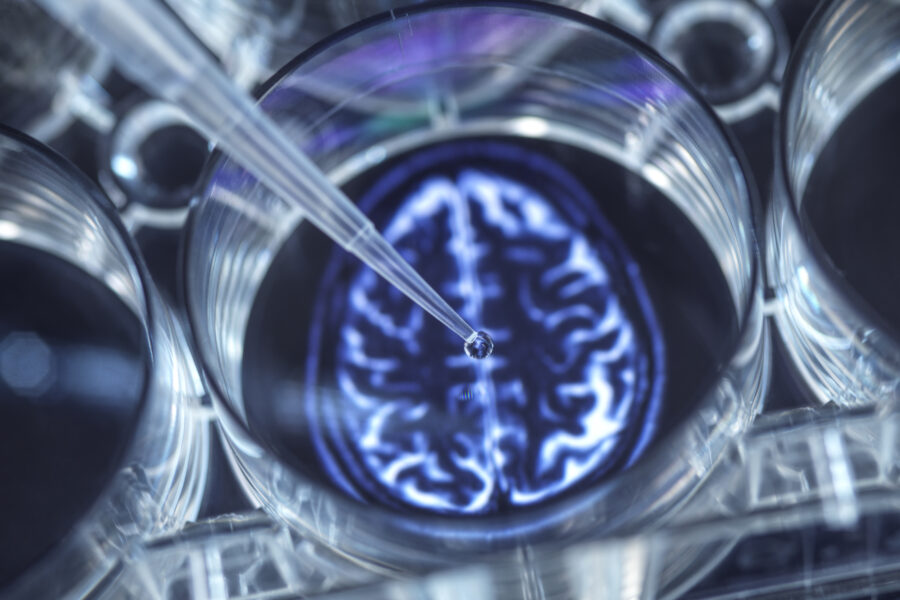Maximizing Male Endocrine Health: How Supplements and Probiotics Can Help
While many men focus on lifting weights or eating the right foods to stay in peak form, there’s a whole other aspect to men’s health that’s hiding in your belly—your gut microbiome! Your gut is home to trillions of bacteria, and these little guys play a huge role in regulating hormones, like testosterone, and can even affect fertility.4
Here we’ll explore how certain nutritional supplements and probiotics can support male endocrine health. From the critical role of vitamins and minerals in hormone production to the power of probiotics in regulating the gut, we’ll break down the science of how these ingredients work to improve overall health. So, let’s dive into the science on how these elements help promote better hormone balance, reduce stress, and enhance reproductive health!
The Gut-Endocrine Connection: Why It Matters
You’ve probably heard about gut health and how it affects digestion. But did you know that your gut also plays a major role in hormone production, including testosterone? The gut microbiome, the community of microbes living in your digestive system, does more than help you digest food. It influences things like inflammation, metabolism, and even your ability to produce the hormones that drive your energy, mood, and reproductive function.4
When the gut microbiome is out of balance, also known as dysbiosis, it can lead to chronic inflammation, oxidative stress, and hormonal disruptions—particularly lower testosterone and sperm quality in men.2 In other words, when your gut isn’t happy, neither is your endocrine system.
Key Ingredients to Support Male Endocrine Health
To tackle male hormonal health, certain nutrients and compounds play a critical role. From vitamins and minerals, to antioxidants and probiotics, let’s explore how these ingredients work to support healthy testosterone levels, improve fertility, and keep you feeling your best.
Eurycoma Longifolia (Tongkat Ali): The Testosterone Enhancer
One of the most well-known herbs for improving male health is Eurycoma longifolia, also known as Tongkat Ali. Research suggests that Tongkat Ali can support normal sperm production in the testes and increase testosterone levels by balancing estrogenic influences.1 Tongkat Ali, found in Systemic Formulas’ male endocrine product called M+, works by modulating the body’s hormonal balance, making it an excellent choice for men looking to optimize their testosterone levels naturally. Not only does it support testosterone production, but it may also help reduce cortisol (the stress hormone) levels, which can further help improve overall male reproductive function and energy levels.1
Zinc: The Testosterone Ally
Zinc is a powerhouse when it comes to maintaining healthy testosterone levels. This essential mineral plays a pivotal role in the regulation of enzymes involved in testosterone production. Studies have shown that zinc deficiency is linked to low testosterone and reduced sperm quality, which is why maintaining adequate levels of zinc is crucial for men’s reproductive health.1 Zinc, the main ingredient in Systemic Formulas’ ZNC, also supports the hypothalamic-pituitary-gonadal axis, a key system responsible for regulating hormone production.
Magnesium: Hormonal Balance and Muscle Health
Magnesium doesn’t just help you relax after a workout, it’s also involved in testosterone production and maintaining hormone balance. This mineral helps modulate the body’s response to stress and supports the hypothalamic-pituitary-gonadal axis, the system that controls the release of testosterone. Plus, magnesium is vital for maintaining proper sperm health, helping to optimize both quantity and motility. Studies have even shown that men who are deficient in magnesium tend to have lower testosterone levels, which can impact muscle mass, energy, and reproductive health.1
Vitamin D: The Sunshine Vitamin for Testosterone
Vitamin D is more than just a nutrient you get from sunlight to support your immune system, it plays a critical role in the regulation of testosterone production. Adequate vitamin D levels have been associated with higher testosterone levels and improved sperm health. Vitamin D works by influencing the synthesis of hormones and promoting optimal functioning of the testicles.2
Antioxidants: Fighting Free Radical Damage
Oxidative stress is another major player when it comes to male reproductive health. Free radicals, damaging molecules that can harm sperm and tissues, are a result of daily metabolic processes and environmental factors like stress, pollution, and poor diet. When there’s too much oxidative stress in the body, it can damage sperm DNA and reduce testosterone levels.2 Key antioxidants like the vitamin C and selenium found in Alimentum Labs’ MethylGenic formula, help neutralize harmful free radicals, reduce inflammation, protect sperm, and promote hormonal health, ensuring your reproductive system functions optimally.
Probiotics: The Gut’s Secret Weapon
Now, let’s talk about probiotics. These live bacteria help maintain a healthy gut microbiome, which, in turn, supports hormone regulation and reproductive health. Specific strains of probiotics, like the strains of Lactobacillus reuteri and Lactobacillus crispatus found in Hormone μBiomic, have been shown to increase testosterone levels and improve sperm motility.3-5
Probiotics do more than just balance gut bacteria—they also help reduce inflammation, improve nutrient absorption, and optimize the body’s ability to synthesize and maintain healthy testosterone levels. By improving gut health, probiotics can create an environment that promotes better hormone production and enhances fertility.
How These Ingredients Work Together
When combined, these vitamins, minerals, and probiotics work synergistically to support your overall endocrine health. Zinc, magnesium, and vitamin D are essential for testosterone production, while antioxidants protect against oxidative damage that can impair sperm health. Meanwhile, probiotics work on the gut side, supporting hormone balance and reducing inflammation—two factors that are crucial for maintaining healthy testosterone levels and fertility.4 Together, these nutrients form a well-rounded strategy for enhancing male health.
Conclusion: A Holistic Approach to Male Endocrine Health
As you can see, maintaining male endocrine health isn’t just about increasing physical activity or eating the right foods. By incorporating these key ingredients into your diet, you can help support optimal testosterone production, reduce oxidative stress, and improve overall reproductive health. Whether you’re aiming to feel more balanced, increase vitality, or boost fertility, this powerful combination of ingredients may be the key to feeling your best, inside and out.
References
- Clemesha, C. G., Thaker, H., & Samplaski, M. K. (2020). ‘Testosterone Boosting’ Supplements Composition and Claims Are not Supported by the Academic Literature. The World Journal of Men’s Health, 38(1), 115–122. https://doi.org/10.5534/wjmh.190043
- Kechagia, M., Basoulis, D., Konstantopoulou, S., Dimitriadi, D., Gyftopoulou, K., Skarmoutsou, N., & Fakiri, E. M. (2013). Health Benefits of Probiotics: A Review. ISRN Nutrition, 2013, 481651. https://doi.org/10.5402/2013/481651
- Ljunggren, L., Butler, E., Axelsson, J., Åström, M., & Ohlsson, L. (2024). Effects of Probiotic Supplementation on Testosterone Levels in Healthy Ageing Men: A 12-Week Double-Blind, Placebo-Controlled Randomized Clinical Trial. Contemporary Clinical Trials Communications, 39, 101300. https://doi.org/10.1016/j.conctc.2024.101300
- Magill, R. G., & MacDonald, S. M. (2023). Male Infertility and the Human Microbiome. Frontiers in Reproductive Health, 5, 1166201. https://doi.org/10.3389/frph.2023.1166201
- Pan, M., Hidalgo-Cantabrana, C., Goh, Y. J., Sanozky-Dawes, R., & Barrangou, R. (2020). Comparative Analysis of Lactobacillus gasseri and Lactobacillus crispatus Isolated From Human Urogenital and Gastrointestinal Tracts. Frontiers In Microbiology, 10, 3146. https://doi.org/10.3389/fmicb.2019.03146




